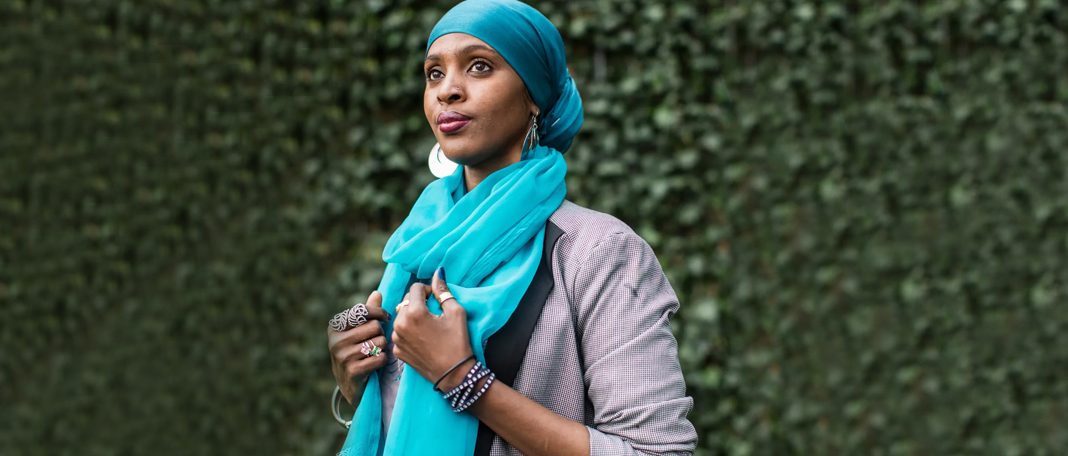UNICEF declares Somalia to be the country with the highest cases of FGM in the world. It has been stated that 98% of the girls between the ages of 5 and 11 have undergone FGM.
Fight Against FGM
Hamda Cali
Hamda Cali, a Somalian nurse, midwife, and activist, fights against female genital mutilation(FGM) in Somalia!
Hamda Cali says that though her mother and aunt wanted her 15-year-old younger sister and two cousins of age 13 and 15 to undergo to go through FGM, she stopped it from happening.
Hamda’s mother and aunt underwent FGM when they turned five. Hamda wanted to change this tradition. For many years now, she has been working to fight against FGM, prevention, and FGM advocacy with the Somaliland Nursing and Midwifery Association.
Zeynab
Zeynab of Somalia shares her story to fight against FGM. She was married when she was 13 years old and had been told to undergo FGM, but no one told her about the pain that must be gone through.
She explains that many people do not understand that it harms girls’ and women’s health and well-being. The after-effects of FGM include developing infections, excessive bleeding, and facing problems during urination, menstruation, and childbirth.
Zeynab explains her struggle during her delivery when she had to undergo a cesarean section and could not deliver normally because of genital mutilation. All three of her daughters had to experience the same because it was marked as a right of passage.
Learn everything about cesarean section vs. normal delivery here.
Ifrah Ahmed
A 32-year-old campaigner, Ifrah Ahmed, who has undergone FGM at the age of eight, becomes one of the first women to discuss the consequences openly.
Ifrah’s movie called ‘A Girl From Mogadishu’ talks about her journey from being a powerless victim to becoming an influential FGM campaigner premiered at the Edinburgh Film Festival.
Why Were Girls Forced to Undergo FGM?
- The older generation of women sees it as a fundamental part of female identity.
- Boys have been advised to marry only those girls who have undergone FGM/C.
- People see the FGM/C as a precondition for marriage and a religious right of passage.
- Many girls go through FGM/C due to social obligation, social exclusion, and lack of marriage.
An Approach to Prevent FGM
WHO and HRP are supporting national partners in Somalia, Guinea, and Kenya to conduct a study that aims to strengthen health workers’ communication to fight against FGM. It involves bringing progress through effective communication and engagement.
Around 180 health care facilities in these three countries receive FGM prevention and care packages. After three months, the health care workers would get new training that includes a person-centered communication curriculum.
Dr. Mamunur Rahman Malik, the WHO representative for Somalia, says that person-centered communication to be the key component for quality health care and human rights. He also explains that they are proud to be a part of this training that focuses on empowering midwives and nurses of their communities.
Many people have a double perspective on FGM. They focus on preventing FGM because of its health and psychological consequences, and at the same time, they consider the social norms as FGM was seen as a rite of passage.
It is when person-centered communication comes into play. It helps to recognize the conversation made by this double perspective. This unique framework supports the antenatal care providers to communicate more effectively with their clients about the abandonment of FGM.
How Does the Person-Centered Approach Work?
Fardwasa Cisman, public health and reproductive health specialist, explains person-centered communication. She recently underwent FGM training and is determined that her three daughters will not undergo FGM.
Person-centered communication: There would be only two people in a room, including the patients and the health worker.
The patient has to explain everything about themselves and their perspective of FGM.
The health worker would share a lot of FGM-related information.
How might COVID-19 increase the risk of FGM?
Researchers say that girls and women are at an increased risk of FGM in the COVID times. Muna Abdi, the Principal Investigator in Somaliland, and her team, and the WHO Country and Regional Offices and HRP colleagues immediately processed for safely continuing their study.
They conducted virtual workshops as in-person training was not possible. They also integrated many COVID-19 preventative measures into their research team, which lead to 0 cases of COVID-19 cases across their team.
Islamic Relief’s Training
The Islamic Relief’s Training helps educate people to fight against FGM and discuss women and girls’ rights. It also focuses on protecting them from the impacts of the COVID-19. They address the risk of gender-based violence and the harmful consequences of FGM.
Let’s join our hands together in fighting against FGM. Together we can completely eradicate this harmful practice.


















